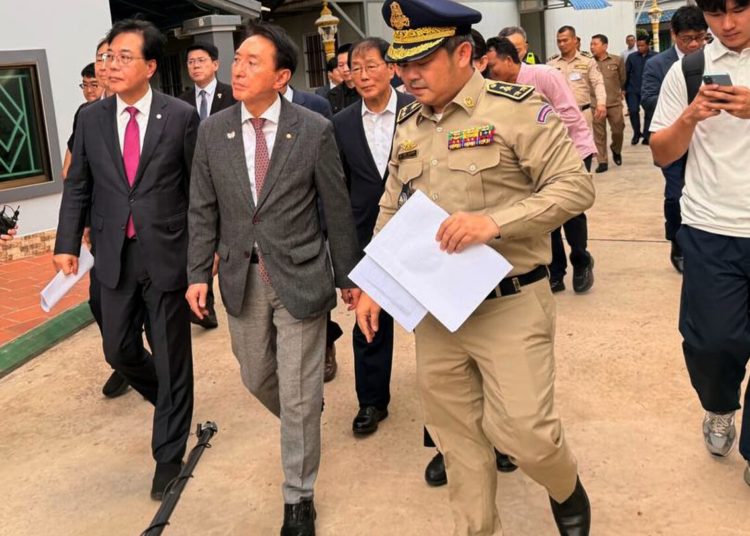Indian Prime Minister Narendra Modi’s absence at a summit in Malaysia where US President Donald Trump is due to be a high-profile guest has raised questions about the progress of over New Delhi’s continued .
Modi briefly mentioned his “virtual” appearance at the upcoming summit in a post on X, which was focused on his “warm” ties with Malaysian Prime Minister Anwar Ibrahim, and on building up the ASEAN-India Comprehensive Strategic Partnership.
Modi’s post did not elaborate further on why he would not travel to Malaysia.
Anwar said he was told Modi would attend virtually due to the “ongoing Diwali celebrations in India,” referring to the Hindu festival of lights.
Malaysia’s Foreign Ministry said Trump is due in the capital Kuala Lumpur for the ASEAN summit on October 26. It would be the first stop of a three-country Asian tour, which is expected to include a sit-down with China’s Xi Jinping in South Korea. The White House has not confirmed Trump’s itinerary.
Both leaders have tried to downplay tensions as the continues.
On Tuesday, during a special event at the White House marking Diwali, Trump said he had a positive talk with Modi, and reiterated claims that .
“We just have a very good relationship and he’s not going to buy much oil from Russia,” Trump told reporters. “They’ve cut it way back and they’re continuing to cut it way back,” Trump said, adding that Modi wanted to “see an end” to the .
Modi thanked Trump for the Diwali greetings, and pledged closer cooperation on fighting terrorism, without mentioning tariffs or oil.
Still, Modi’s absence at ASEAN has fueled speculation from the Indian PM’s political opponents that shaking hands on the global stage with Trump would be a bad look back home.
Jairam Ramesh, a senior member of India’s main opposition Indian National Congress party, said on X Thursday that it would be “far too risky” for Modi to be seen “hobnobbing physically” with Trump.
Ramesh said Trump’s ongoing claims on Russian oil, along with for stopping a war with Pakistan in April, , have become political liabilities for Modi.
When the US president initially made his claim last week, India’s opposition leader, Rahul Gandhi, said “Modi is frightened of Trump,” accusing the prime minister of allowing “Trump to decide and announce that India will not buy Russian oil.”
Trump and Modi’s busted bromance
When and at the White House in February, expectations were high that the warm relationship the leaders enjoyed during Trump’s first term would continue.
However, India soon realized it would not receive special treatment as Trump rolled out sweeping tariffs, which included a 25% levy on some Indian exports.
In August, the Trump administration said India’s purchases of Russian oil were funding Moscow’s war in Ukraine, and slapped on an additional 25% tariff, to an eye-watering 50%, souring US-India ties to their lowest point in decades.
Last week, Trump rocked the boat further by claiming for the first time that Modi “assured” him that India would stop buying Russian oil.
Indian officials have neither confirmed nor denied Trump’s claims.
New Russia sanctions add pressure
However, Reuters reported on Thursday that the top Indian buyer of Russian crude oil, Reliance Industries, was preparing for a “massive cut” in Russian oil imports.
“We don’t anticipate it will go to zero immediately as there will be some barrels coming into the market” via intermediaries, a refinery source told Reuters on condition of anonymity.
“Recalibration of Russian oil imports is ongoing and Reliance will be fully aligned to GOI [Government of India] guidelines,” a Reliance spokesperson told Reuters.
The report comes after the US announced landmark new sanctions on Russia’s largest oil producers, Rosneft and Lukoil, which US Treasury Secretary Scott Bessent said were responsible for funding the Kremlin’s “war machine.”
The move, the first direct targeting of Russia’s war from the second Trump administration, freezes all US assets belonging to the Russian oil giants, while allowing for secondary sanctions on foreign banks that do business with them.
This could mean banks in India would face penalties for facilitating Russian oil imports.
The US Treasury has set a November 21 deadline for companies to draw down transactions with Rosneft and Lukoil. Analysts have said the impact remains dependent on US enforcement, and how banks will comply.
New Delhi stays put, for now
As the Russian oil rumors swirl, India’s Foreign Ministry continues to emphasize that the country’s priority remains maintaining Indian energy independence, and keeping energy prices low for consumers.
Last week, Indian Foreign Ministry spokesman Randhir Jaiswal said that Washington had shown interest in deepening energy cooperation and talks on that were underway.
Jaiswal had emphasized that India’s priority on oil imports was to “safeguard the interests of the Indian consumer in a volatile energy scenario.”
Sumit Ritolia, a New Delhi-based oil analyst from trade research house Kpler, told DW that might “reduce” its Russian oil imports, but added: “I don’t see us going down to zero anytime soon.”
India’s oil purchases from Russia grew nearly 19-fold from 2021 to 2024, from 0.1 to 1.9 million barrels a day, making Russia India’s top source of crude oil.
In 2022, New Delhi began buying barrels from Russia at a discount after Moscow launched its war, and was hit with sanctions to cut off oil revenues.
India has argued that at one point, the US had actively supported Indian oil purchases from Russia to help stabilize global oil prices.
Edited by: Keith Walker
Written with reporting from DW Business
The post India’s Modi to miss Trump at ASEAN as oil tensions persist appeared first on Deutsche Welle.




